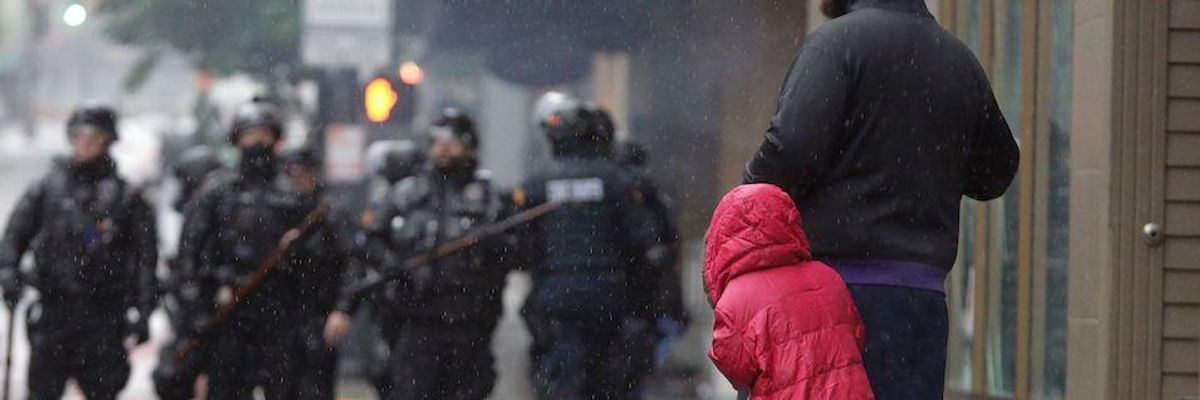Journalists and civil liberties advocates alike condemned a ruling Thursday by a county judge in Seattle, Washington instructing a number of city media outlets to give police photographs and video footage taken during a May 30 Black Lives Matter demonstration against police brutality.
"This turns journalists into an arm of the government," tweeted journalist Matt Pearce. "We are not here to do surveillance for police."
The "extremely troubling" ruling applies to the Seattle Times and local stations KIRO, KOMO, KING, and KCPQ. The five outlets were subpoenaed by the Seattle Police Department for a 90-minute span of footage that shows demonstrators police say were responsible for property destruction and the theft of some guns during the protest.
"This ruling is disturbing--and dangerous," the paper's Metro editor Benjamin Woodard said on Twitter. "Our newsroom does not work in concert with law enforcement."
Times executive editor Michele Matassa Flores told her paper that the ruling "puts our independence, and even our staff's physical safety, at risk."
"The media exist in large part to hold governments, including law enforcement agencies, accountable to the public," Matassa Flores said. "We don't work in concert with government, and it's important to our credibility and effectiveness to retain our independence from those we cover."
In his ruling, King County Superior Court Judge Nelson Lee rejected the outlets' argument that the content was protected by Washington state's shield law.
According to the Times:
Lee ruled that the SPD had met its burden to overcome the shield law: that the images were "highly material and relevant" and "critical or necessary" to prove an issue that has a compelling public interest for its disclosure. Getting the stolen weapons off the street was one compelling public interest, Lee found.
"This should alarm readers and viewers," tweetedCNN national correspondent Ed Lavandera. "Journalists must be allowed to work independently!"
